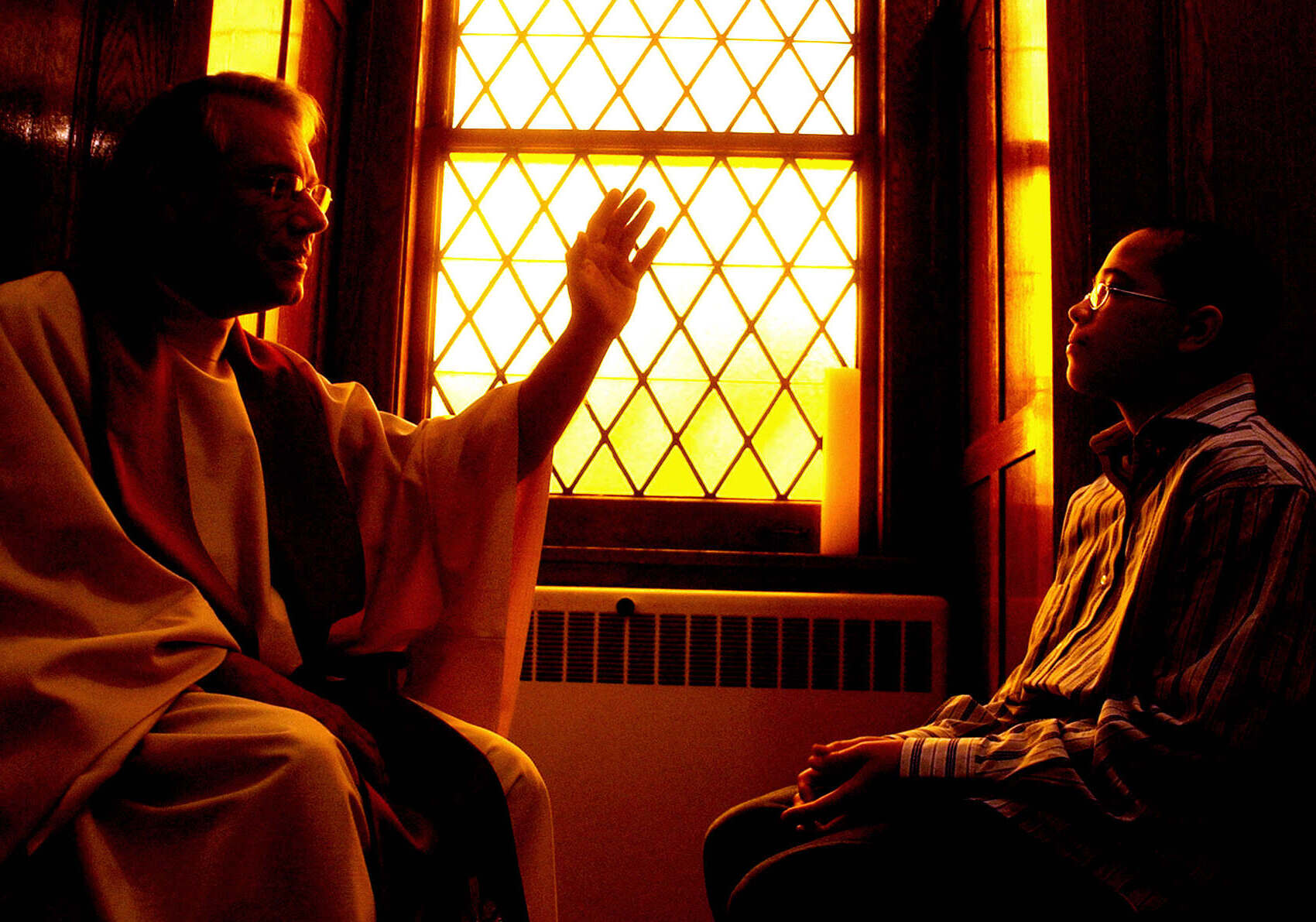
Penance is a fascinating concept that has intrigued people for centuries. But what exactly is it? Penance refers to acts of self-discipline or remorse for past wrongdoings, often seen in religious contexts. These acts can include prayer, fasting, or other forms of self-denial. Penance serves as a way to seek forgiveness and make amends for one's actions. It's not just about feeling sorry; it's about taking concrete steps to show remorse and improve oneself. Whether you're curious about its historical roots, its role in various religions, or how it impacts modern life, this list of 50 facts will give you a comprehensive look at penance.
What is Penance?
Penance is a concept deeply rooted in various religious traditions, especially within Christianity. It involves expressing remorse for one's sins and seeking forgiveness. This practice can take many forms, from prayer and fasting to acts of charity. Let's dive into some fascinating facts about penance.
-
Penance in Christianity: In Christianity, penance is often associated with the Sacrament of Reconciliation, where believers confess their sins to a priest and perform acts to show their repentance.
-
Etymology: The word "penance" comes from the Latin word "paenitentia," which means repentance or regret.
-
Forms of Penance: Common forms include prayer, fasting, almsgiving, and other acts of self-denial.
-
Biblical References: The concept of penance is mentioned in the Bible, particularly in the New Testament, where Jesus calls for repentance.
-
Medieval Practices: During the Middle Ages, penance often involved severe physical punishment, such as wearing hair shirts or self-flagellation.
Penance in Different Religions
While penance is most commonly associated with Christianity, other religions also have similar practices. These acts of repentance and atonement vary widely across cultures and beliefs.
-
Islam: In Islam, the concept of "Tawbah" is similar to penance, where believers seek forgiveness from Allah through prayer and good deeds.
-
Hinduism: In Hinduism, penance can involve rituals, fasting, and pilgrimages to holy sites.
-
Buddhism: Buddhists practice penance through meditation, chanting, and following the Eightfold Path to eliminate negative karma.
-
Judaism: In Judaism, Yom Kippur, the Day of Atonement, is a significant time for penance, involving fasting and prayer.
-
Sikhism: Sikhs perform penance through selfless service, prayer, and meditation on God's name.
Historical Perspectives on Penance
Throughout history, the practice of penance has evolved, reflecting changes in religious thought and societal norms. Here are some historical insights.
-
Early Christianity: In the early Christian church, penance was a public act, often involving the entire community.
-
Council of Trent: The Council of Trent (1545-1563) formalized the practice of penance within the Catholic Church, emphasizing confession and absolution.
-
Reformation: During the Protestant Reformation, many reformers criticized the Catholic Church's practices of penance, leading to significant changes in how it was viewed and practiced.
-
Modern Practices: Today, penance is often more personal and less severe, focusing on spiritual growth and reconciliation.
-
Eastern Orthodox Church: In the Eastern Orthodox Church, penance is seen as a therapeutic process, helping believers heal spiritually.
Cultural Expressions of Penance
Penance is not just a religious act; it has also found its way into various cultural practices and traditions. These expressions can be quite unique and diverse.
-
Ash Wednesday: In many Christian traditions, Ash Wednesday marks the beginning of Lent, a period of penance and fasting.
-
Pilgrimages: Pilgrimages to holy sites, such as the Camino de Santiago in Spain, are often undertaken as acts of penance.
-
Festivals: Some cultures have festivals that include acts of penance, such as the Hindu festival of Thaipusam, where devotees perform acts of self-mortification.
-
Art and Literature: Penance has been a common theme in art and literature, reflecting its deep cultural significance.
-
Public Acts: In some cultures, public acts of penance, such as processions and reenactments, are still practiced today.
Psychological and Social Aspects of Penance
Penance also has psychological and social dimensions, influencing how individuals and communities deal with guilt, forgiveness, and reconciliation.
-
Guilt and Remorse: Penance helps individuals cope with feelings of guilt and remorse, providing a path to forgiveness.
-
Community Healing: Acts of penance can promote healing within communities, fostering reconciliation and unity.
-
Personal Growth: Engaging in penance can lead to personal growth, helping individuals develop empathy and compassion.
-
Rituals and Routines: Regular acts of penance can become important rituals, providing structure and meaning in people's lives.
-
Therapeutic Value: Many find the practice of penance to be therapeutic, offering a way to process and move beyond past mistakes.
Penance in Popular Culture
Penance has also made its way into popular culture, appearing in movies, books, and other media. These portrayals can shape public perceptions and understanding of the practice.
-
Movies: Films like "The Mission" and "The Da Vinci Code" feature themes of penance and redemption.
-
Books: Literature, such as "The Scarlet Letter" by Nathaniel Hawthorne, explores the complexities of penance and societal judgment.
-
Music: Songs and hymns often include themes of penance, reflecting its emotional and spiritual significance.
-
Television: TV shows sometimes depict characters undergoing acts of penance, adding depth to their storylines.
-
Video Games: Some video games incorporate themes of penance and redemption, allowing players to explore these concepts interactively.
Controversies and Criticisms
Like many religious practices, penance has faced its share of controversies and criticisms. These debates often center around its methods and implications.
-
Indulgences: The sale of indulgences in the Catholic Church, which promised reduced penance, was a major point of contention during the Reformation.
-
Physical Punishment: The use of severe physical punishment as penance has been criticized for being harmful and abusive.
-
Psychological Impact: Some argue that penance can have negative psychological effects, leading to feelings of shame and unworthiness.
-
Cultural Sensitivity: The imposition of penance practices across different cultures has sometimes led to misunderstandings and conflicts.
-
Modern Relevance: In today's secular society, the relevance and necessity of traditional penance practices are often questioned.
Modern Interpretations of Penance
In contemporary times, the concept of penance has evolved, adapting to modern sensibilities and needs. These interpretations often focus on personal growth and social responsibility.
-
Self-Improvement: Many view penance as a form of self-improvement, focusing on making amends and bettering oneself.
-
Social Justice: Acts of penance can include efforts to address social injustices, such as volunteering and activism.
-
Environmental Responsibility: Some modern interpretations of penance involve taking responsibility for environmental impact, such as reducing carbon footprints.
-
Mindfulness and Meditation: Practices like mindfulness and meditation are sometimes seen as modern forms of penance, promoting inner peace and reflection.
-
Therapeutic Practices: Therapy and counseling can be viewed as forms of penance, helping individuals work through guilt and seek forgiveness.
Fun Facts about Penance
Penance isn't always a solemn affair; there are some lighter, more interesting aspects to this practice that might surprise you.
-
Penance in Sports: Some athletes perform acts of penance, like running extra laps or doing push-ups, to atone for mistakes during games.
-
Celebrity Apologies: Public apologies by celebrities can be seen as modern acts of penance, seeking forgiveness from fans and the public.
-
Penance in Fiction: Superheroes and fictional characters often undergo acts of penance, adding depth to their stories.
-
Cultural Rituals: Some cultures have unique penance rituals, like the Japanese practice of "seppuku," a form of ritual suicide to atone for dishonor.
-
Penance and Humor: Comedians sometimes joke about penance, using humor to explore its complexities and contradictions.
Penance and Technology
In the digital age, penance has found new expressions through technology, offering innovative ways to seek forgiveness and make amends.
-
Online Confessions: Some websites and apps allow people to confess their sins and seek penance anonymously.
-
Virtual Pilgrimages: Technology enables virtual pilgrimages, allowing individuals to undertake acts of penance from the comfort of their homes.
-
Social Media: Public apologies and acts of penance on social media have become common, reflecting the digital age's influence on traditional practices.
-
Digital Fasting: Some people practice digital fasting as a form of penance, taking breaks from technology to reflect and recharge.
-
Charity Apps: Apps that facilitate charitable donations and volunteer work offer modern ways to perform acts of penance and give back to the community.
Final Thoughts on Penance
Penance, a practice deeply rooted in many cultures and religions, holds significant meaning for countless individuals. Whether viewed as a spiritual cleansing, a form of self-discipline, or a path to redemption, it’s clear that penance plays a crucial role in personal growth and reflection. Understanding its various forms and historical context can offer a deeper appreciation for its impact on human behavior and society. From fasting and prayer to acts of charity, the ways people perform penance are as diverse as the reasons behind them. This practice, whether ancient or modern, continues to shape lives and communities. By recognizing the importance of penance, we can better understand its enduring presence in our world. So, next time you hear about someone doing penance, remember the rich history and profound significance behind this timeless tradition.
Was this page helpful?
Our commitment to delivering trustworthy and engaging content is at the heart of what we do. Each fact on our site is contributed by real users like you, bringing a wealth of diverse insights and information. To ensure the highest standards of accuracy and reliability, our dedicated editors meticulously review each submission. This process guarantees that the facts we share are not only fascinating but also credible. Trust in our commitment to quality and authenticity as you explore and learn with us.


